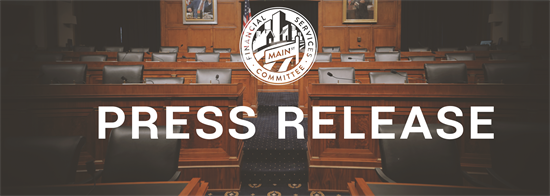Subcommittee Examines the Financial Stability Board
Washington,
September 27, 2016
WASHINGTON – The Monetary Policy and Trade Subcommittee held a hearing to examine concerns with the work and transparency of the Financial Stability Board (FSB), an international organization largely controlled by European central bankers and financial regulators. “It is very troubling that American regulators would relinquish any regulatory authority to unelected European bureaucrats who meet behind closed doors in a secretive fashion to determine the fate of U.S. financial institutions,” said Subcommittee Chairman Bill Huizenga (R-MI), “Because very little is known about the FSB, I have very serious concerns about its arbitrary decision-making process used to formulate policy that is devoid of any and all public participation.” While the FSB’s decisions are not legally binding on its members, “the organization operates by moral suasion and peer pressure,” according to the FSB. To ensure domestic implementation of its standards, the FSB has adopted measures to pressure jurisdictions to comply. Key Takeaways from the Hearing:
Topline Quotes from Witnesses: “In the years since the global financial crisis, the FSB has asserted an expanding role on the world stage. The FSB claims a broad mandate—nothing less than the entire global financial system—but it is dominated by central bankers and finance ministers. This membership is predisposed to viewing financial activity conducted outside of banks as “shadow banking” and to considering such activity to be inadequately regulated because it is not subject to bank standards and supervision. Not surprisingly, we strongly disagree with this portrayal and are deeply troubled by the FSB’s ability to perpetuate this view through its influence on financial policy in its participating jurisdictions.” -Mr. Paul Schott Stevens, President and Chief Executive Officer, Investment Company Institute “While SIFMA and its members support harmonized and consistent international standards, we also believe that there are certain characteristics of U.S. markets that are unique or sufficiently different from markets in other jurisdictions that they should be subject to significant adjustments and calibration or even different standards. In this context, we have become very concerned that the more U.S. regulators base their rules on standards adopted internationally, without adequately taking into account the unique characteristics of U.S. markets, the more U.S. financial institutions become subject to rules that in significant ways do not make sense for the U.S. financial markets or broader economy.” -Mr. Carter McDowell, Managing Director and Associate General Counsel, Securities Industry and Financial Markets Association “…the U.S. insurance industry and its regulatory system are underrepresented at the FSB, with no involvement or consultation by the functional state regulators of the actual U.S. insurance entities of those designated G-SIIs. When the FSOC designations of Prudential and MetLife were made, they were done over the objections of the one voting member of the Council with insurance expertise, Roy Woodall as well as state regulator on the council, John Huff. As stated earlier, the court has since overturned the MetLife designation.” -Mr. Jonathan Bergner, Assistant Vice President for Federal Policy, National Association of Mutual Insurance Companies ### |


